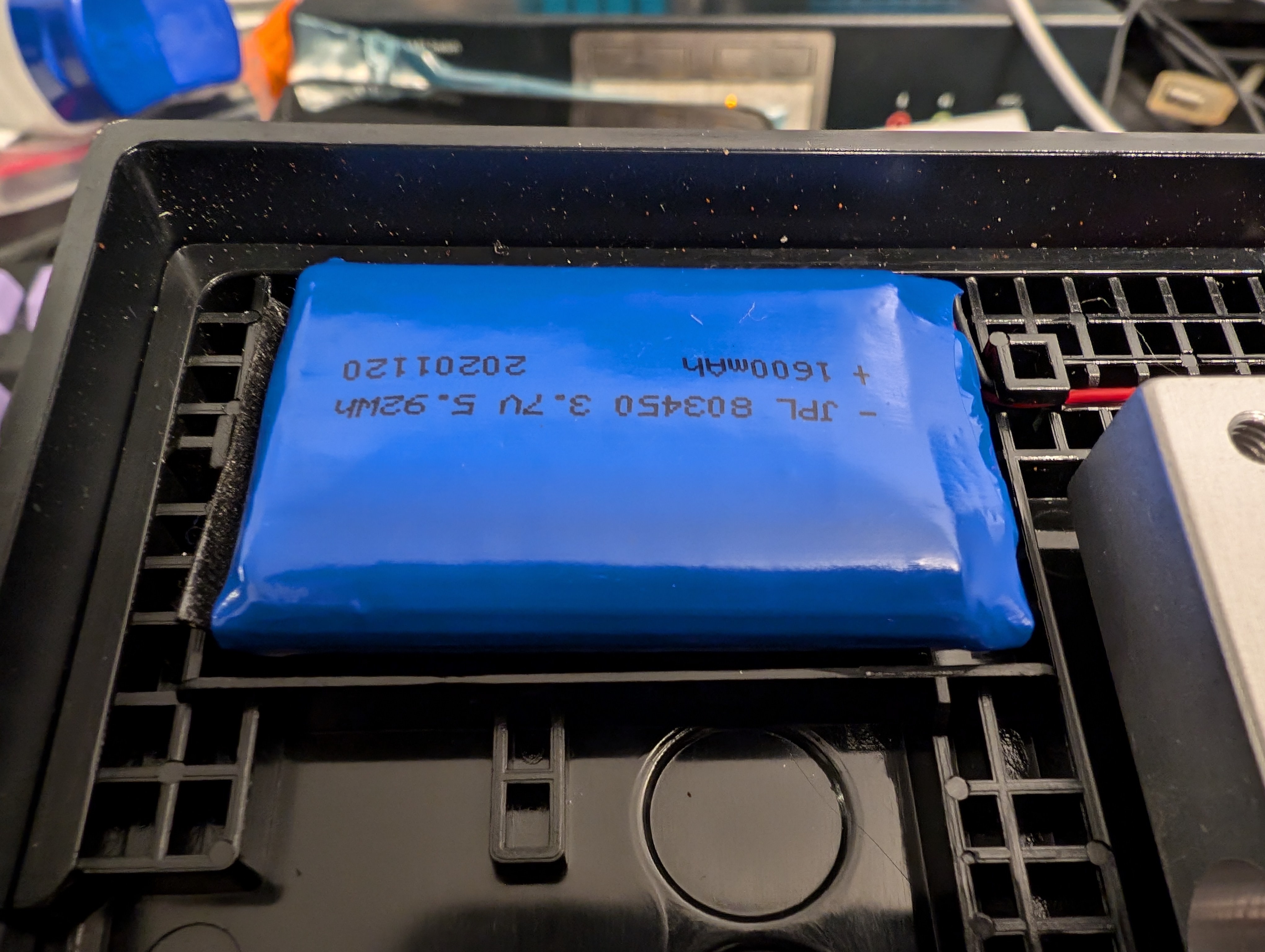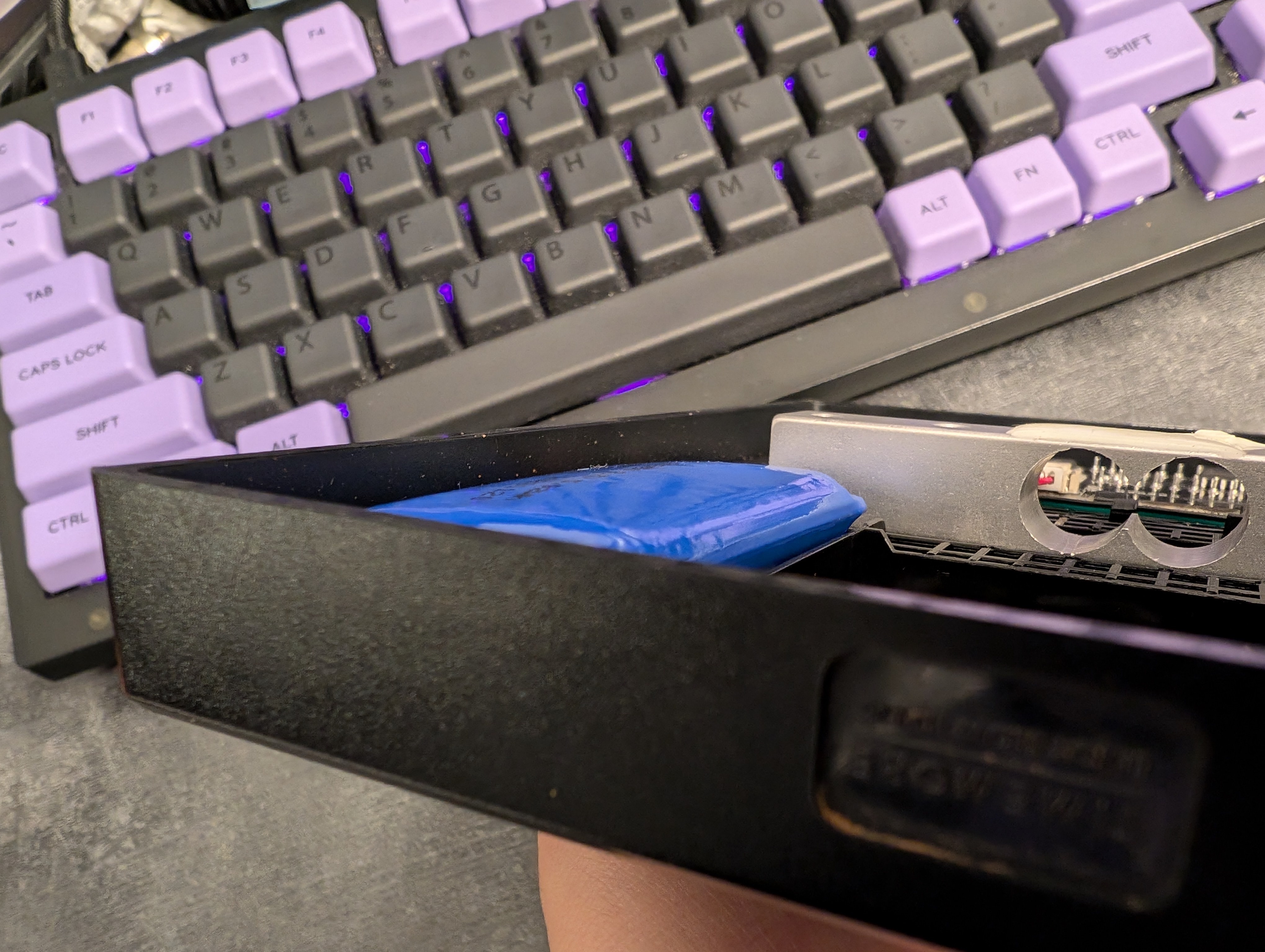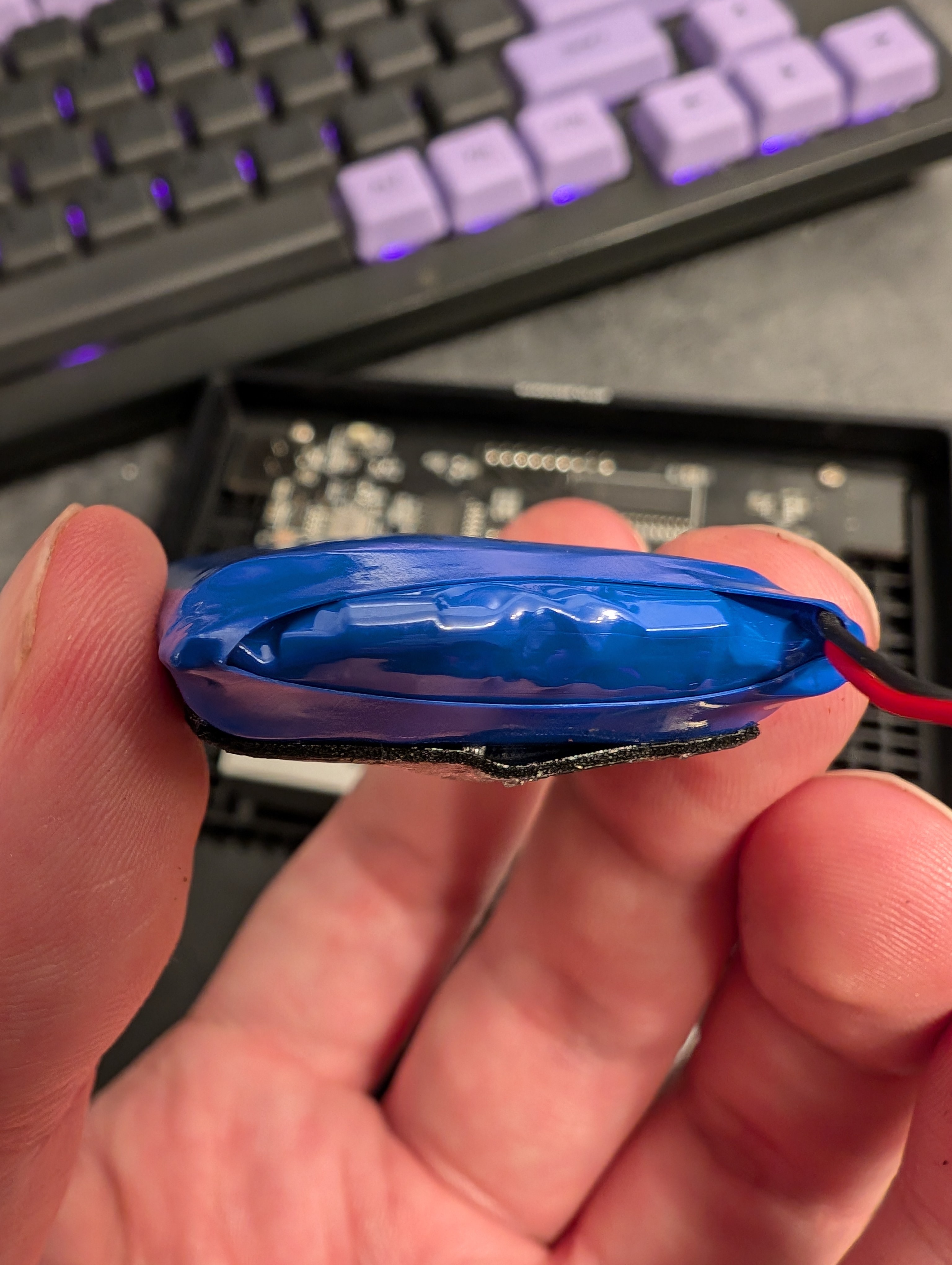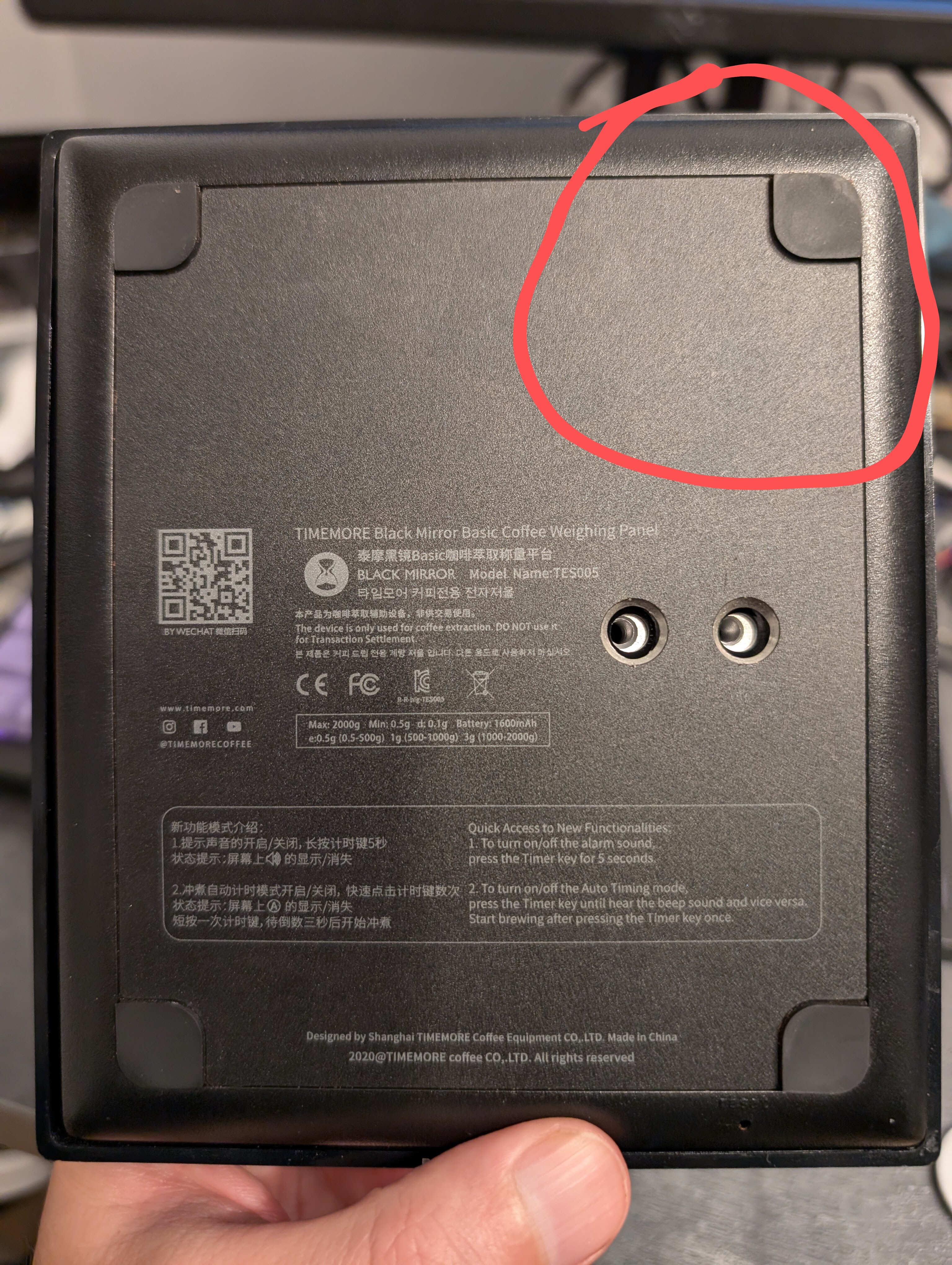- cross-posted to:
- spicypillows
- [email protected]
- cross-posted to:
- spicypillows
- [email protected]
Lately I’ve had some obviously inaccurate measurements from my Timemore Black Mirror scale. That would happen occasionally but not always. I was charging it today and as luck would have it, I was sitting beside it. I typically charge it unattended. I noticed that it took a very long time to charge and multiple times it seemed to restart charging. I grabbed it to check the cable and noticed it was quite warm in one spot. I though - that’s alright, it’s likely where the battery cell is, it’s charging, lithium cells get warm during charging. Later I took it off the charger and while handling it I examined the hot spot a bit more. I noticed that when I squeezed the scale at that corner, the top plate wouldn’t sink towards the bottom as it does in the other corners. A few mental calculations later I figured this could be a swollen cell that has grown so large that it impacts the plates and doesn’t let them come together as they do normally. I took it apart. Lo and behold this spicy pillow:



The marking on it means it’s supposed to be 8mm thick. It’s currently closer to 12.5mm. Removing the battery allowed the two plates to come together in all corners as normal. That confirmed the hypothesis. Further, the reason why it only occasionally impacted the measurements is likely due to the weight of the cup I was using. When using a lighter cup, the total weight would be lower than needed to get the two plate to touch the battery and produce inaccurate measurement.
I ordered this as a replacement. It fits the dimensions and it’s got some safety certification.
To check if your scale is a fire hazard, squeeze this corner:

Normal squeeze action looks like this. Unfortunately I didn’t record a video prior to removing the battery.
If it the two plates come together as the do in the other corners, you’re probably okay. If the plates don’t come nearly as close, you’ve got an unlit petard in your hands.


You really should. Probably right now.
I also never understood why we are moving away from alkaline/NiMH for low power devices such as scales. My cheapo scale takes 2 AAA cells which I have to charge like once a year. They are safer and designed to be replaced. And probably also cheaper in production.
Ease of electronics.
It is more expensive and bulkier using those cells because you need boost converters instead of dirt cheap linear regulators to put a modern 3.3V MCU in there. With how cheap lithium cells are (and that they are rechargeable) nowadays, the power converters + the mechanical AAA housing is often more expensive than a lithium cell + charger
Hopefully we will switch over to sodium ion in the coming 5 years or so which are rechargeable, cheaper materials, higher charge cycle counts, and completely safe at the cost of also needing a boost converter. Maybe we will even start to shift more towards 1.8V MCUs. Sodium ion is better in nearly every way than alkaline while just having bad capacity compared to Li-ion.
Yeah, if the cells are standard, available and easy to replace and safe if abandoned, it’s not a huge deal replacing them every few years.